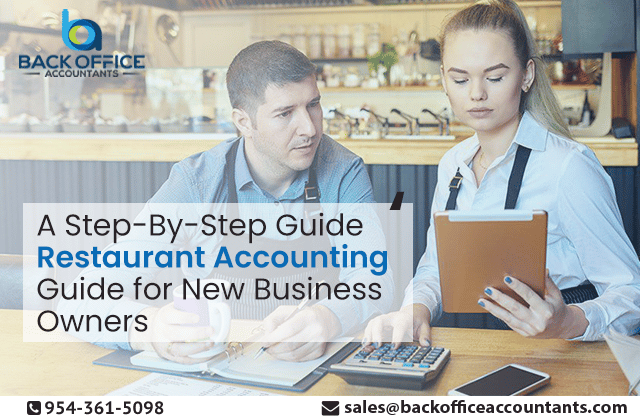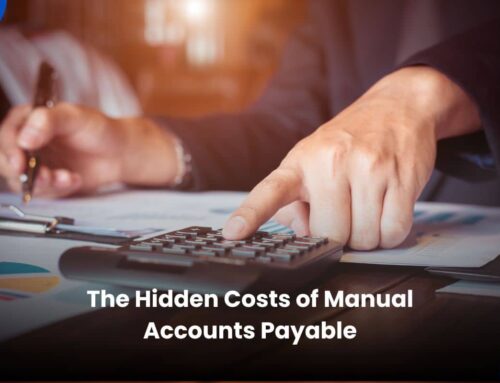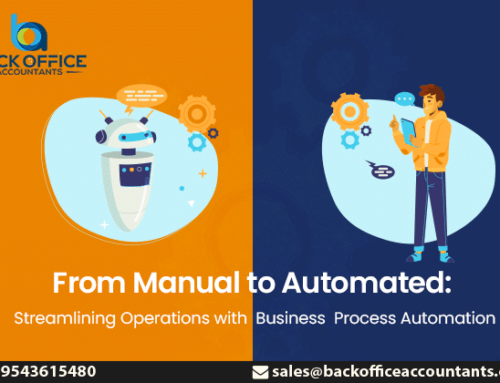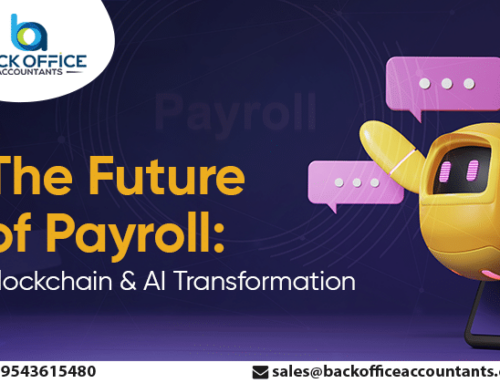Accounting is a foundational component of every business. It is how businesses measure, manage and optimize the financial health of the business. From recording the daily transactions to creating detailed financial reports & documentation, every step of the process is performed to improve the overall sales, revenue and profitability of the business.
Given the volatile nature of the restaurant business and its slim profit margins, efficient accounting is key for any business to survive and thrive. As a new business restaurant business owner it is critical to have a basic understanding of accounting and its importance to ensure a smooth and successful business. That said, accounting knowledge may not always help in building an accounting system/department that can help you hit your business goals right away.
If you are a new business owner who is looking to build your accounting capabilities from the ground up then this blog is exactly for you. With the inputs of our restaurant accounting experts at Back Office Accountants, we provide you with an outline of restaurant accounting in this blog and then give a step-by-step guide for setting up one. Read on:
Restaurant Accounting – Process & Outline:
Restaurant accounting is the comprehensive process of recording, analysing, and interpreting the financial data to further optimize the metrics that are key for business growth. The total process can be outlined in the following steps:
- Restaurant Bookkeeping – Recording the daily transaction accurately in a master document followed by categorising and coding them into the ledger.
- Analysing the daily accounting journal and ledger entries.
- Accounts Payable management – Invoice and payment processing.
- Creating balance sheets, income and financial statements in addition to customized financial documentation.
- Budgeting and forecasting, calculating and benchmarking prime costs, COGS ratios and other essential KPIs for the restaurant business.
- Auditing & completing tax returns.
- Extracting financial insights for optimization.
So naturally, restaurant accounting starts with restaurant bookkeeping which is synonymously used with restaurant accounting, and that is incorrect. If bookkeeping is recording and coding of daily financial transactions, accounting is the process of analysis and insight extraction for financial optimization and compliance. The total process of setting up a restaurant accounting process can be divided into three steps which are as follows:
A Step-By-Step Guide Restaurant Accounting Guide for New Business Owners:
Step -1. Configuring the Books:
a.Find the right bookkeeper & accounting system:
Most small and medium restaurant businesses multitask their way out of bookkeeping. While it may work in the initial phase over time this practice may eventually backfire as owners are mired with plenty of other key responsibilities like staffing, marketing, inventory management and operations.
The food and beverage industry has its unique complexities that require a dedicated bookkeeper experienced in both the front and back ends of operations. Having the right cloud accounting software that can streamline the data entry, invoice processing, financial documentation and simplify reporting can be of great help for restaurant owners. For more help in choosing the right accounting software, you can refer to our blog here.
b.Pick an ideal POS system:
A POS system is essential for cash, inventory, order & receipt management, and back-office reporting. Choose an easy-to-use POS system that integrates with your existing accounting software.
c.Set up the chart of accounts:
Chart of Accounts (COA) is the foundation for restaurant record keeping. A COA is the complete list of business accounts in the general ledger, used to categorize & classify the money flowing in and out of the business. So the chart essentially is comprised of assets, liabilities, expenses, income, revenue and owner’s equity. All the accounts in the chart of accounts are organized in a specific order from balance sheets to income statements.
Having a detailed COA setup makes it easier to work with your accountant and sheds light on opportunities and areas of improvement. For this to happen COA must be broken down into specific categories and the right metrics needs to be monitored which shall be discussed in step 2.
Step 2: Tracking: Now that you have set your books in line to records, few accounts need to be tracked efficiently, and they are:
- Restaurant Accounts Payable: AP has a huge impact on the cash flow, working capital and vendor relationship. So keep track of all the payables and strategize an AP process that optimized the cash flow. You can find our detailed guided about Restaurant Accounts Payable here.
- Inventory: Food costs and wastage can be thoroughly optimized by optimal inventory tracking and management.
- Sales and cash management: Accurately tracking and categorizing the total revenue gives you greater insight into daily sales and lays a foundation for optimized cash flow management.
- Reconciliation: Reconciling eliminates the accounting errors, improves accuracy and identifies fraudulent activities – making month-end reconciliation a mandatory activity. If you are a business that is finding it difficult to reconcile your accounts. You can check out our reconciliation services here.
Step 3: Reporting: Balance sheet, Profit and Loss (P&L) statement, Cash flow statements, Revenue reports, and Prime cost reports are some of the key reports that measure your financial performance Food Costs, Prime Costs, Overhead Rates, Cost of Goods Sold, COGS ratio, EBITDA, Gross Profit, Net profit margin, are some of the key ratios to track and consider while overseeing your financial statements.
Finding the Right Restaurant Accounting Services:
Restaurant Accounting that can pave way for a thriving restaurant business needs a lot of groundwork and expertise. And choosing the right accountant/accounting services is the first step in this process.
If you are a new restaurant business that is looking to build a strong accounting foundation with great ROI then consider outsourcing your accenting functions to our experts at Back Office Accountants. As a remote accounting firm specializing in restaurant accounting services, we have helped hundreds of restaurants optimize their accounting and financial performance. Led by veteran CPAs, our restaurant accounting experts at Back Office Accountants can build you an efficient accounting system from the ground up or even plug the gaps in your current accounting system. For more information on restaurant accounting services, you can contact us here: https://www.backofficeaccountants.com/







